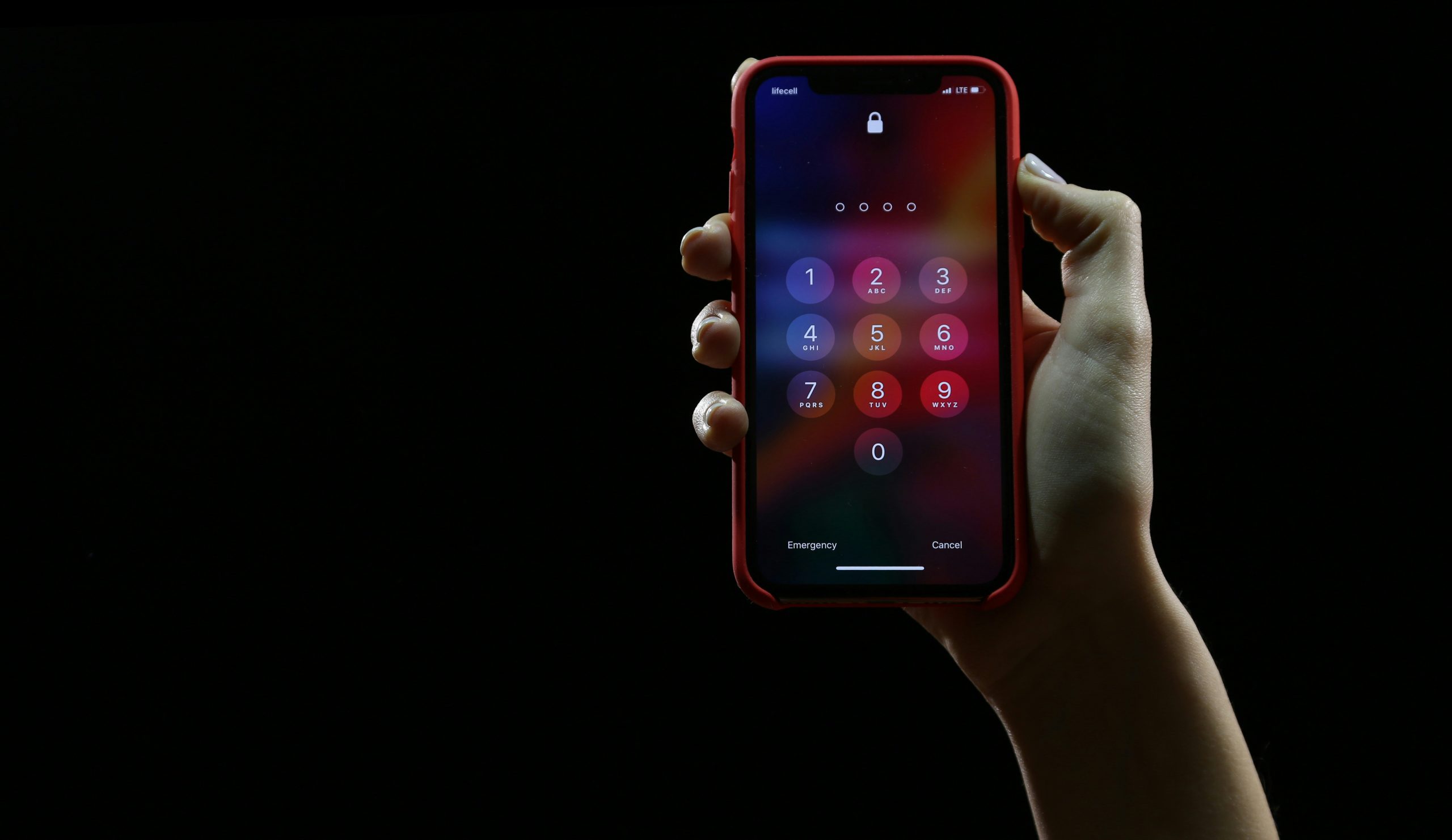In the age of digital dominance, where our lives are tethered to a myriad of online accounts, passwords have become both our shields and shackles. Imagine navigating this complex landscape with a twist: your password not only needs to keep hackers at bay but also must cleverly incorporate today’s Wordle answer. This quirky challenge adds a refreshing layer to an otherwise monotonous task, transforming password creation into an engaging puzzle that sharpens both your linguistic skills and cognitive flexibility.
But how do you master this unique blend of security and creativity? Fear not! In this article, we’ll explore effective strategies for crafting strong passwords while seamlessly integrating the latest Wordle solution. Whether you’re a seasoned Wordle enthusiast or just dipping your toes into its addictive gameplay, you’ll discover tips that will make your passwords more memorable—and perhaps even fun! Get ready to turn the mundane chore of password management into an exhilarating game that keeps your information safe while celebrating the joy of words.
What is The Password Game?
The Password Game has captured the attention of puzzle enthusiasts and casual gamers alike by cleverly intertwining elements of wordplay with digital security. At its core, players must create a password using today’s Wordle answer as a foundational element, transforming what many perceive as mundane into an engaging challenge. This twist on traditional password creation encourages creativity while ensuring that each selected word conveys personal significance or aligns with current trends in language.
Unique to The Password Game is its underlying social layer; friends and family can collaborate or compete in crafting the most compelling passwords. This collaborative dynamic not only heightens engagement but also opens avenues for communication. Players might discuss their Wordle strategies alongside quirky anecdotes linked to the words chosen, fostering deeper connections through shared experiences. As participants explore vocabulary from various angles—funny phrases, trending colloquialisms, or even obscure terms—they redefine how we think about security protocols and show that safeguarding information can spark joy rather than frustration.

Overview of Today’s Wordle Challenge
Today’s Wordle challenge invites players with a delightful blend of simplicity and complexity. At first glance, the five-letter word may seem straightforward, but hidden beneath its surface are layers of meaning and strategies waiting to be unlocked. As the challenge unfolds, participants are not just guessing letters; they’re engaging in a dance of logic, vocabulary recall, and intuition that makes each attempt exhilarating.
This particular word taps into an everyday experience or common theme, making it relatable yet challenging for players at all levels. It emphasizes how language evolves and adapts within our cultural context—what might have seemed obscure can suddenly resonate deeply thanks to current trends or events. Observing others’ strategies on social media also adds an intriguing layer; the community aspect transforms solitary gameplay into a shared quest for success where insights are exchanged like currency among word enthusiasts worldwide. Embrace today’s Wordle not just as a puzzle but as a way to sharpen your lexical skills while participating in this vibrant global phenomenon.
Importance of Strong Passwords
Strong passwords act as the first line of defense against unauthorized access to your personal information. In a digital landscape teeming with cyber threats, the simplicity of a common password can make you an easy target. Many people underestimate how easily attackers can exploit weak credentials; using variations of your name or simple patterns is not only predictable but also perilous. Instead, consider crafting a password that combines several unrelated words, symbols, and numbers—this complexity exponentially increases resilience against brute-force attacks.
Moreover, the significance of strong passwords extends beyond mere protection; they foster peace of mind in an increasingly interconnected world. Think about it: each time you click “submit” on a new account or transaction, you want to feel confident that your data is secure. Utilizing password managers simplifies this process by enabling you to generate and store unique passwords effortlessly for every site—even those pesky ones requiring today’s Wordle answer! Elevating your online security begins with understanding that while convenience has its merits, taking the extra time to forge robust passwords will save you from potential chaos down the line.

Tips for Choosing a Secure Password
When crafting a secure password, creativity can be your best ally. Move beyond predictable phrases and lean into uniqueness by employing unexpected combinations of unrelated words, or even creating an acronym from a memorable sentence—an approach that not only strengthens security but also makes it easier for you to remember. Consider using elements from personal experiences or current events; this adds layers of meaning that random character strings simply lack.
Moreover, think about incorporating symbols and numbers creatively without sacrificing usability. For instance, substituting letters with similar-looking digits (like turning ‘E’ into ‘3’ or ‘A’ into ‘@’) can enhance complexity while still allowing the password to feel familiar. Remember to avoid personal information like birthdays or names as these are often easily guessed by hackers. Finally, practice good password hygiene by updating your passwords regularly and utilizing unique passwords for different accounts; this strategy ensures that if one password falls into the wrong hands, others remain secure.
In addition to these tactics, consider leveraging password managers which can generate long, complex passwords on demand and store them securely—all while keeping your brain free for other creative activities like solving today’s Wordle puzzle! This tool transforms what could be a tedious process into a seamless experience while maintaining high security standards across all your online applications.
Incorporating Wordle Answers Effectively
Incorporating Wordle answers effectively into your password strategy can transform a mundane requirement into a playful challenge. The first step is to select words that not only fit the criteria of today’s puzzle but also resonate with personal significance or humor, making them memorable. For instance, you might choose words inspired by favorite hobbies, inside jokes, or even curated themes like characters from beloved books. Such connections help ensure that passwords remain easy to recall while maintaining complexity.
Consider layering your Wordle-derived passwords with unique formatting elements. For example, substituting numbers for similar-looking letters—like 3 for “E” or 0 for “O”—adds an extra layer of security without sacrificing the inherent connection to the original word. Additionally, think about creating phrases that incorporate multiple Wordle answers across days; this not only heightens security further but also weaves a narrative thread through your password choices—transforming them from mere strings of characters into amusing stories in their own right.
Finally, engaging with trends within the Wordle community can provide inspiration for creative integrations in your password game. By exchanging ideas with fellow enthusiasts about clever combinations and thematic ties between daily puzzles, you may discover new angles on securing your digital life while enjoying one of the hottest word games out there. Remember: having fun while being strategic can make all the difference in cultivating both memorable and secure passwords!

Strategies for Remembering Complex Passwords
One innovative strategy for remembering complex passwords is to create a vivid mental image that incorporates elements of the password. For instance, if your password includes the word ‘lemon,’ envision a giant lemon wearing sunglasses riding a unicycle. This absurd imagery not only makes the password more memorable but also adds layers of humor and creativity—effectively embedding it deeper into your mind. Consider this as creating “memory hooks” that transform abstract letters and numbers into tangible concepts.
Another approach is to use mnemonic devices, where you convert the characters of your password into an easy-to-remember phrase or story. If your password contains “S3cureD@tabase!”, think of a narrative like Three squirrels explore caves under red apples.” Breaking down complex passwords into short stories or sentences can significantly enhance recall while ensuring they remain strong against potential breaches. By associating visual scenarios or fabricated narratives with information you need to retain, you can reduce cognitive load and streamline your memory retrieval process while navigating The Password Game’s challenging landscape.
Conclusion: Mastering Your Security with Fun
Incorporating elements of fun into security practices can transform the often tedious process of password management into an enjoyable challenge. By using something like today’s Wordle answer as a password component, you not only engage your brain in a playful manner but also create a personal connection to your passwords. This strategy taps into the power of associations, allowing you to remember complex passwords more easily while simultaneously promoting better security habits.
Engaging with security doesn’t have to feel like a chore; instead, it can be woven seamlessly into daily routines through games and challenges. Consider setting mini-goals related to password creation or even organizing friendly competitions among friends or colleagues to see who can come up with the most creative yet secure passwords that incorporate daily Wordle answers. This approach fosters camaraderie while emphasizing the importance of cybersecurity, making protection against online threats feel less daunting and more approachable.



Leave a Reply